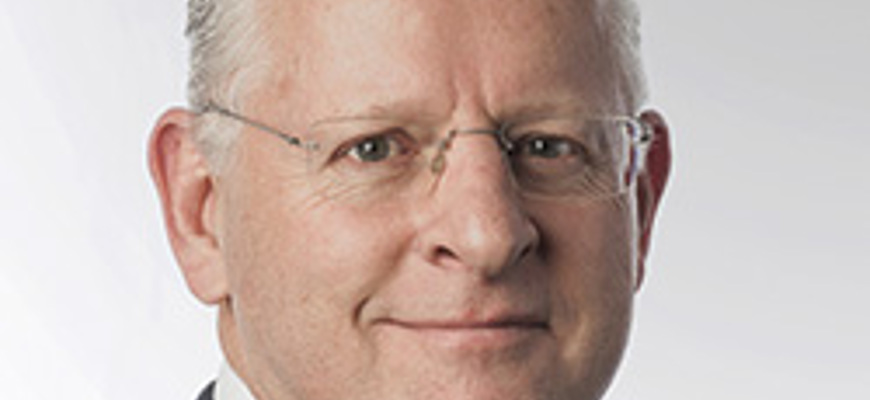The road less travelled

Where are you from, and what has been your career path?
Glasgow, where I went to Eastwood High and then Glasgow University for my first degree, in biochemistry. I joined Scottish Agricultural Industries, but after three years, I moved to Sun Alliance (now RSA) on their graduate entry scheme, becoming a senior insurance underwriter. Participating in settling contentious, high-value claims gave me the taste for law and I took the two-year LLB at Strathclyde University.
Summer vacation jobs at Standard Life led to my traineeship there under Colin Anderson. I remain very grateful to Colin for giving me that break, and to his team who taught me the craft of being in-house, and of course plenty of law. Much of this I only put into practice later; perhaps with trainees it is ever thus.
From Standard I went to General Accident in Perth, then London and what is now Aviva. I broadened my experience with a spell at Japanese investment house, Nomura. It was a revelation seeing two vast trading floors and I loved it there, and the foreign travel involved. Next steps up were to Glasgow to join Resolution Group, then back to London and, after leaving what had become Phoenix, I joined Royal London in 2011, becoming GC shortly afterwards.
I have been fortunate to have worked in fast paced, dynamic operations alongside many motivated and successful colleagues, and yes, it’s a world away from lab coats, agrochemicals and farmyards but I never forget how it all started. I assure you, dealing with Scottish farmers in matters of business is, shall we say, enlightening. Business is business as they say, whether in Scotland, Frankfurt, Tokyo, or here in the City.
How is your in-house legal team structured, and what input do you have in business strategy and governance?
There are 11 solicitors including myself, split between Edinburgh and London, plus experienced support staff and a pensions expert. Pinsent Masons provides us with a succession of top-quality trainees seconded to spend a six-month seat with us.
I attend Royal London’s executive committee, and this provides an opportunity to get into the detail of how the Group’s vision is formed and the strategy to be pursued. Each solicitor partners to an area of business but behind that we act as a pool, moving resource to where it is needed. The Group company secretary reports to me and our teams work closely to support and advise on governance and decision-making.
What is a typical working day?
I am usually in for 8.30. My day is made up of speaking to my team about what is in the pipeline, discussing issues and talking to execs about their next concerns. We strive to get close to new business initiatives as they evolve. I also catch up with relationship partners of law firms, to see whose capabilities might be useful to us. I spend a lot of my day asking questions and listening. I’m usually out by 6.30, but often it is nearer seven.
What motivates you on a Monday morning?
What I do and the clever, driven, successful and really funny people I work with. That and looking at Tower Bridge as I cross into the City, the interesting work we have and what Royal London is doing and wants to achieve.
What do you really enjoy about working in-house?
In-house brings the opportunity to get very involved in initiatives and projects across all the business. We encourage our lawyers to play a major part in driving the business to the desired outcome. Lawyers are resilient and try to find another way through a block, and are always thinking of the way ahead. Leading projects and initiatives is very motivating and perhaps the real attraction.
Has your organisation experienced any major change recently?
Royal London is the UK’s largest life, pensions and investment mutual and includes Scottish Provident and Scottish Life. Recently we have acquired Royal Liver and the life insurance business of the Co-op. We have also launched a new business in the direct-to-consumer market, rebranded to Royal London, and have ambitions to become the most trusted and recommended financial services company in our sector. The scale of regulatory change is a challenge, but change has become pretty much a constant for our staff. We want to do more for our customers so there is further innovation ahead.
What was your most amusing work experience?
At a Nomura conference in Tokyo, on the last night there was a dinner, in a really smart restaurant with the company’s top executives. Such celebrations ended with the most senior person having the last word and raising a glass to the company’s continued fortune. As this concluded, my London colleague thought he was being funny when he called out for me to say a few words. I was horrified; what a breach of protocol! My senior Japanese colleague smiled quizzically and nodded for me to continue. An unmitigated disaster beckoned. I did what any of us would have done – burst into song. I can still hear the strains of “Auld Lang Syne” as all my colleagues joined me in singing Burns’ verses, in Japanese of course.
What makes a good in-house lawyer?
Curiosity to know the business, the law that surrounds it and then being very smart at it. That said, it really is behaviour that counts. The Royal London legal team was highly ranked by the FT Innovative Lawyers awards. Around me I see lawyers who are very accessible, resilient, confident, decisive and display leadership. They ensure good decisions are made allowing for greater speed later, and move fast to help colleagues evaluate risk and find a way to achieve their goals.
What’s your advice for lawyers who want to go in-house?
Consolidate your knowledge in whatever area you choose, so that you are aware of what really good advice looks like. Your focus widens and you are the “person of business”. Be able to write well, and a mediation course wouldn’t go amiss. Start thinking like a leader rather than a manager, as often you are the one who brings different views together to solve issues. Look at joining committees outside work. It all helps you speak to people in a way they can relate to.
What do you look for when you seek external legal advice? How do you see the in-house/external legal relationship changing?
Our rule of thumb is that external solicitors must be able to complete the matter better than we could. Understanding the decisions we have to make, and the performance we are seeking, is the essence of delivering commercial advice. This means an investment of time on both sides, perhaps six or 12 months ahead of any instructions being given. The Journal’s “The Word of Gold” column is pretty accurate in describing the service demanded. We prefer a close working relationship based on externals caring about us. Successful delivery is paramount.
What are the current hot legal topics in your sector? How does the future look for in-house lawyers?
Most insurance sectors are awash with regulatory change. Boards and senior execs will always want a lawyer to advise them and the size of the legal functions will depend on the offerings of the external advice providers.
Does Scottish legal education and training provide the necessary skills for working in-house in your organisation?
Yes. This is evidenced by the can-do attitude, capability and excellence that are delivered by the recent recruits to my team. Their ability to learn makes for a successful transition into in-house. Our secondees, trained in Scotland, display knowledge and capability that adapts well to in-house demands.
How do you think in-house lawyers today are perceived within the legal profession?
Many young lawyers aspire to move in-house, and for good reason. It is stretching, interesting and rewarding but it is hard work. The innovation taking place in our sector, for example in artificial intelligence, provides a significant threat to all. It makes sense to ensure we concentrate on what unites us as we address how we adapt.
You were on the ILG committee in the past. How do you see the current remit of the ILC developing?
The In-house Lawyers Committee has a real focus and energy, evidenced by its articles and reports in the Journal. It is exciting to see the momentum build to support all levels of in-house experience, in particular the organising of mentoring. The ILC can provide that critical mass needed to have an effective network for in-house lawyers. This is great news, as the expectations of CEOs and boards are climbing.
What keeps you busy outside the office?
For 10 years I was a governor on a local school board – a different dynamic to the corporate world and I had to adapt my style. It was very rewarding and I learned a huge amount about how people cope with the pressures that unexpected events in normal life bring. Weekends are now a busy schedule of family life shared with my wife and two girls (aged 15 and 14). The elder loves the arts; the younger plays lots of sport. My wife rows on the Thames (and the Channel), and we have season tickets at Crystal Palace FC.
What would you take with you to a desert island? What would you put in Room 101?
I’d love to while away desert island days on Machrie (Islay) and Machrihanish Golf courses. A box set of Ealing studio films, cases of Islay whisky and a copy of Mike Nicholson’s Catscape – search the internet for why that is significant. I’d banish PPI compensation calls, red tape and overzealous London traffic wardens.
In this issue
- Divorce in Scots law and Sharia law
- British Bill of Rights: radical reform or damp squib?
- Ten steps to winning new business
- The Keeper is coming
- Winding-up applications: when to refuse a first order
- Reading for pleasure
- Opinion: Marsha Scott
- Book reviews
- Profile: Susan Carter
- President's column
- Securities: no more sasine
- People on the move
- Back for more
- Funding your practice
- Equal but different?
- Making safety work
- A mediation story: the mediator's log
- Uber and above?
- Experts reassessed
- Land reform: part 10 takes shape
- Out of shape
- Requirement to register: meet PSC and SIOC
- Transgender: developing participation rules
- Scottish Solicitors Discipline Tribunal
- The road less travelled
- From the Brussels office
- Law reform roundup
- Doing the business
- EU benefit rights: a not so new deal?
- Fraud: raising your game
- Ask Ash
- In the rights place
- Using your secure digital signature
- Come to the conference






